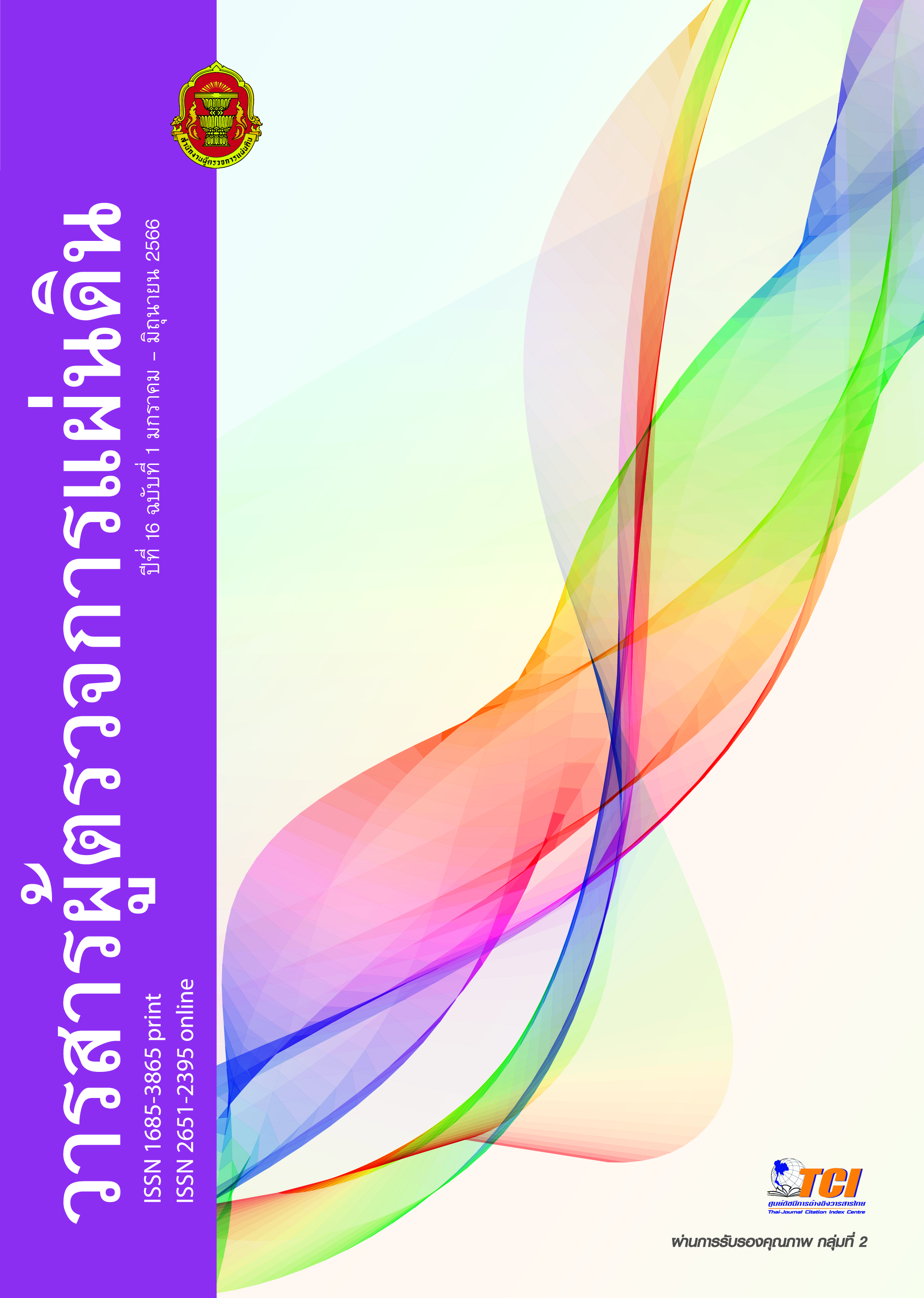ระเบียบโลกในโมงยามแห่งความเปลี่ยนแปลง
คำสำคัญ:
ระเบียบโลก, เสรีนิยม, สัจนิยม, คอนสตรัคติวิสต์, เศรษฐกิจการเมืองระหว่างประเทศบทคัดย่อ
บทความนี้ต้องการนำเสนอเกี่ยวกับการเปลี่ยนแปลงของระเบียบโลก โดยทำการศึกษาผ่านแนวคิดและมุมมองของนักทฤษฎีที่เกี่ยวข้อง ตั้งแต่มุมมองแบบสัจนิยม เสรีนิยม คอนสตรัคติวิสต์ และเศรษฐกิจการเมืองระหว่างประเทศ ซึ่งจะช่วยทำให้เราเห็นมุมมองที่หลากหลายของระเบียบโลกและพฤติกรรมของแต่ละรัฐในการเมืองระหว่างประเทศ ผลการศึกษาพบว่า ระเบียบโลกเสรีนิยมเดิมที่เคยนำโดยสหรัฐอเมริกาและชาติตะวันตก หลังยุคสงครามเย็นเป็นต้นมา บัดนี้กำลังถูกท้าทายจากการเปลี่ยนแปลงหลายประการ ไม่ว่าจะเป็น การเปลี่ยนแปลงของพลวัตของความสัมพันธ์เชิงอำนาจ การเกิดขึ้นของตัวแสดงใหม่ การเกิดความอ่อนแอขององค์การระหว่างประเทศ รวมทั้งความก้าวหน้าทางด้านเทคโนโลยี ซึ่งล้วนสร้างแรงสั่นสะเทือนต่อตัวระเบียบโลกเสรีนิยมเดิมให้สั่นคลอน
ด้วยเหตุนี้ จึงทำให้แต่ละรัฐในการเมืองระหว่างประเทศพยายามที่จะสนับสนุนและพัฒนาระเบียบโลกทางเลือกของตัวเองขึ้นมา ซึ่งผู้กำหนดนโยบายของรัฐนั้น ต้องให้ความสำคัญและพิจารณาความท้าทายที่อาจเกิดขึ้นจากระเบียบโลกแบบใหม่อย่างรอบด้านและครอบคลุม บทความนี้จะช่วยทำให้เราเห็นถึงแนวโน้มและทิศทางความท้าทายต่าง ๆ ที่สังคมการเมืองโลกต้องเผชิญในอนาคต รวมทั้งข้อเสนอต่อการปรับตัวของประเทศไทยทั้งทางด้านการเมือง สังคม และเศรษฐกิจ เช่น การขยายกรอบความร่วมมือ การทบทวนและประเมินนโยบายต่างประเทศ การมีส่วนร่วมและสนับสนุนกลไกสถาบันระหว่างประเทศ รวมทั้งการพัฒนาขีดความสามารถทางเทคโนโลยี เพื่อที่จะทำให้ไทย สามารถพัฒนาประเทศเท่าทันในโมงยามแห่งการเปลี่ยนผ่านของระเบียบโลก
เอกสารอ้างอิง
Andersen, M. S., & Wohlforth, W. C. (2021). Balance of power: A key concept in historical perspective. In Routledge Handbook of Historical International Relations (pp. 289-301). Routledge.
Andreu, M., & Brassett, J. (2020). International Political Economy (IPE). The Routledge Handbook to Rethinking Ethics in International Relations, 39.
Barkin, J. S., & Sjoberg, L. (2019). International Relations' Last Synthesis? Decoupling Constructivist and Critical Approaches. Oxford University Press.
Bellamy, R. (2019). Liberalism. In Contemporary political ideologies (pp. 23-49). Routledge.
Blitz, J., Brunsden, J., & Hughes, L. (2019). Brexit timeline: Key dates in the UK’s divorce from the EU. Financial Times Online.
Block, F. (2008). Polanyi’s double movement and the reconstruction of critical theory. Revue interventions économiques. Papers in political economy, 38: 1–14.
Blyth, M. (Ed.). (2009). Routledge handbook of international political economy (IPE): IPE as a global conversation. Routledge.
Buch-Hansen, H., & Nielsen, P. (2020). Critical realism: Basics and beyond. Bloomsbury Publishing.
Busch, M. L., & Reinhardt, E. (2003). Developing countries and general agreement on tariffs and trade/world trade organization dispute settlement. J. World Trade, 37, 719.
Carr, E. H. (1951), The Twenty Years’ Crisis, 1919–1939: An Introduction to the Study of International Relations, London: Macmillan.
Center, W. (2018). The Key Problem of Our Time: A Conversation with Henry Kissinger on Sino-US Relations. (5, October 2019). Retrieved from https://www.wilsoncenter.org/article/the-key-problem-our-time-conversation-henry-kissinger-sino-us-relations.
Chandler, D. (2013). Promoting democratic norms? Social constructivism and the subjective limits to liberalism. Democratization, 20(2), 215-239.
Choi, H. (2021). President Biden and climate change: policy and issues. Available at SSRN 3847183.
Cui, S., & Buzan, B. (2016). Great power management in international society. The Chinese Journal of International Politics, 9(2), 181-210.
Haass, R. (2021). The age of America first: Washington's flawed new foreign policy consensus. Foreign Aff., 100, 85.
Haggard, S., & Simmons, B. A. (1987). Theories of international regimes. International organization, 41(3), 491-517.
Haynes, J. (2021). Religion and International Relations: What do we Know and how do we Know it?. Religions, 12(5), 328.
Holm, H. H. (2019). Whose world order?: uneven globalization and the end of the Cold War. Routledge.
Hooghe, L., Lenz, T., & Marks, G. (2019). Contested world order: The delegitimation of international governance. The Review of International Organizations, 14, 731-743.
Htun, M., & Ossa, J. P. (2013). Political inclusion of marginalized groups: indigenous reservations and gender parity in Bolivia. Politics, Groups, and Identities, 1(1), 4-25.
Hussain, N., Waseem, R., & Ahmad, R. (2022). Destabilizing Unipolar World And Emergence Of Multi-Polarity: Theoretical Debate. Webology (ISSN: 1735-188X), 19(3).
Ikenberry, G. J. (2018). Why the liberal world order will survive. Ethics & International Affairs, 32(1), 17-29.
Kenneth Waltz. (1979). Theory of International Politics. New York: Random House, pp. 104-105.
Kirshner, J. (2012). The tragedy of offensive realism: Classical realism and the rise of China. European journal of international relations, 18(1), 53-75.
Kissinger, H. (2014). World Order Reflections on the Character of Nations and the Course of History. New York: Penguin Press. Comillas Journal of International Relations, (10), 91-92.
Knock, T. (2019). To End All Wars, New Edition: Woodrow Wilson and the Quest for a New World Order. Princeton University Press.
Kulkarni, A., Sanzgiri, A., & Jha, V. (2021). International Political Economy of Covid-19 Vaccine: Issues & Challenges. Hmlyan Jr Eco Bus Mgn, 2(2), 17-23.
Levitsky, S., & Way, L. A. (2002). Elections without democracy: The rise of competitive authoritarianism. Journal of democracy, 13(2), 51-65.
Lilyblad, C. M. (2019). NGOs in constructivist international relations theory. Routledge handbook of NGOs and international relations, 113-127.
Lombardo, E., & Kantola, J. (2021). Social constructivism. In The Routledge handbook of gender and EU politics (pp. 43-55). Routledge.
Mansfield, E. D., & Rudra, N. (2021). Embedded liberalism in the digital era. International Organization, 75(2), 558-585.
Massad, J. A. (2020). Islam in liberalism. University of Chicago Press.
Mearsheimer, J. J. (2007). Structural realism. International relations theories: Discipline and diversity, 83, 77-94.
Mearsheimer, J. J. (2019). Bound to fail: The rise and fall of the liberal international order. International security, 43(4), 7-50.
Milner, H. V., & Kubota, K. (2005). Why the move to free trade? Democracy and trade policy in developing countries. International Organization, 59(1), 107-143.
Moravcsik, A. (2020). Liberal intergovernmentalism. In Oxford Research Encyclopedia of Politics.
Morris, S. (2023). Development finance cooperation amidst great power competition: what role for the World Bank?. Oxford Review of Economic Policy, 39(2), 379-388.
Ojekemi, O. S., Rjoub, H., Awosusi, A. A., & Agyekum, E. B. (2022). Toward a sustainable environment and economic growth in BRICS economies: do innovation and globalization matter? Environmental Science and Pollution Research, 29(38), 57740-57757.
Sørensen, G. (2006). What kind of world order? The international system in the new millennium. Cooperation and Conflict, 41(4), 343-363.
Van Wyk, J. A., Kinghorn, L., Hepburn, H., Payne, C., & Sham, C. (2007). The international politics of nuclear weapons: A constructivist analysis. Scientia Militaria: South African Journal of Military Studies, 35(1).
Vivares, E. (Ed.). (2020). The Routledge handbook to the global political economy: Conversations and Inquiries. Routledge.
Vreeland, J.R. (2003). The IMF and economic development. Cambridge University Press.
Waltz, K. N. (1979). Theory of international politics. Addison-Wesley.
Wendt, A. (1992). Anarchy is what states make of it: the social construction of power politics. International Organization, 46(2), 391-425.
ดาวน์โหลด
เผยแพร่แล้ว
รูปแบบการอ้างอิง
ฉบับ
ประเภทบทความ
สัญญาอนุญาต
ลิขสิทธิ์ (c) 2023 สำนักงานผู้ตรวจการแผ่นดิน

อนุญาตภายใต้เงื่อนไข Creative Commons Attribution-NonCommercial-NoDerivatives 4.0 International License.
- เนื้อหาและข้อมูลในบทความที่ลงตีพิมพ์ในวารสารผู้ตรวจการแผ่นดินถือเป็นข้อคิดเห็นและความรับผิดชอบของผู้เขียนบทความโดยตรงซึ่งกองบรรณาธิการวารสาร ไม่จำเป็นต้องเห็นด้วย หรือร่วมรับผิดชอบใดๆ
- บทความ ข้อมูล เนื้อหา รูปภาพ ฯลฯ ที่ได้รับการตีพิมพ์ในวารสารผู้ตรวจการแผ่นดินถือเป็นลิขสิทธิ์ของวารสารฯ หากบุคคลหรือหน่วยงานใดต้องการนำทั้งหมดหรือส่วนหนึ่งส่วนใดไปเผยแพร่ต่อหรือเพื่อกระทำการใดๆ จะต้องได้รับอนุญาตเป็นลายลักษณ์อักษรจากวารสารฯ ก่อนเท่านั้น



